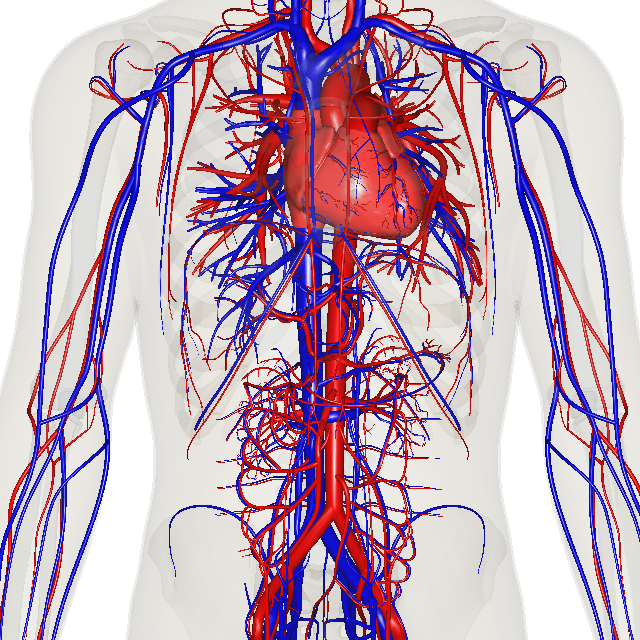 It’s quite the wake up call when you realize that together with the vital organs in the human body an intricate network of blood vessels strewn across every part of the body is keeping you alive. The circulatory system is an interconnected pathway of arteries, veins and capillaries that delivers oxygen and nutrients to cells in the human body. It’s made up of the heart which is the principal co-coordinator and blood vessels. Now, here’s the thing about the circulatory system.
It’s quite the wake up call when you realize that together with the vital organs in the human body an intricate network of blood vessels strewn across every part of the body is keeping you alive. The circulatory system is an interconnected pathway of arteries, veins and capillaries that delivers oxygen and nutrients to cells in the human body. It’s made up of the heart which is the principal co-coordinator and blood vessels. Now, here’s the thing about the circulatory system.
In as much as it seems like a confusing labyrinth of sorts, it’s impressively organised. The arteries packed with rich nutrients- carry blood away FROM the heart and distribute it to every part of the body. Veins, on the other hand, carry blood TO the heart. Essentially there are two circulatory systems. The pulmonary circulatory system takes charge of receiving the oxygen we breathe in, whilst the systemic circulatory system is responsible for dispensing it throughout the body, tissues, cells and organs included. It is therefore clear that the complexity of this thorough, interconnected network should never be disrupted.
What Are The Causes Of Poor Circulation?
Age, immobility, medical conditions and a poor diet can affect the effectiveness of your circulatory system with catastrophic effects. But seeing that you can’t turn back the clock on age, your biggest bet will be boosting cardiovascular activity by working out and staying active. Or, you can attempt to get treatment for any underlying condition that may be causing problems with with your circulation. Whichever way you look at it, there is always a solution.
A Dietary Approach To Poor Circulation
A number of foods have been known for their ability to improve poor circulation.
- Oranges: Citrus is high in vitamin C. Vitamin C is a natural blood thinner with the ability to prevent clogging and strengthen capillary walls.
- Cayenne pepper: The miracle spicy herb! The innate nutritional properties of cayenne pepper again strengthen the walls of arteries as well as being a useful aid in boosting metabolism. Best consumed raw as a spicy addition to salads, it is also ideal as a constituent ingredient to fruit juices. Also, it has amazing anti-inflammatory properties.
- Garlic: Like oranges, it is a thinning agent for thickened blood. Besides that, garlic is a great way to clear clogged blood vessels.
- Nuts, watermelons, ginger and superbeets have more or less the aforementioned nutritional benefits.
Cut Down On Stimulants and Antidepressants
Despite what people may say about a little alcohol being good for circulation, it couldn’t be farther from the truth. When consumed in excess, alcohol floods the body with toxins. However, studies show that wine has a positive effect on cholesterol levels and is a decent antioxidant. As for common stimulants like coffee, cigarettes, carbonated drinks and diet pills, the secret is to cut down before it’s too late as stimulants have been known to amplify the effects of poor circulation twofold and exacerbate your problem.
Buy The Perfect Fit
You may not realize it but the tight pair of shoes you’re always wearing to work can be contributing to your circulatory issues. The circulatory system depends on the free movement of your hands and feet. Leading a sedentary, desk/couch-bound lifestyle inhibits the very body movement that’s central to healthy circulation. In the same breath, massage therapy can help release the tension in cramped and numb muscle tissues. Another smart idea is switching to an office ball chair if you find yourself glued to your seat for most of the day.
Poor circulation is a problem for most. And because healthy circulation contributes to overall health, it’s important to devise ingenious, natural ways to maintain a tidy circulatory system.
